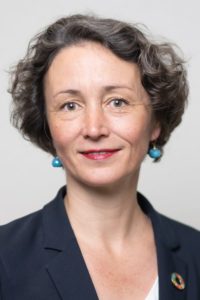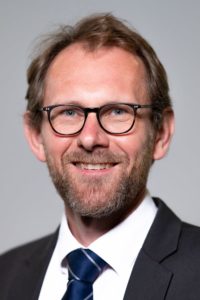In addition to the policy field of development cooperation, international economic and trade policy is an important instrument for expanding cooperation and shaping a sustainable future.
Building on the work of IDOS’ research cluster „Green Economy„, Prof. Dr Anna-Katharina Hornidge contributed to the Handelsblatt event „Circular Economy“ on 6 February. She spoke in a moderated discussion with Dr Bettina Hoffmann, Parliamentary State Secretary at the Federal Ministry for the Environment, Nature Conservation, Nuclear Safety and Consumer Protection (BMUV) and Dr Dina Barbian, Managing Director of the eco2050 Institute for Sustainability, about national approaches and strategies for promoting the circular economy. She underlined the objective of decoupling resource consumption and value creation. To achieve this, the use of resources has to be minimised at a very early stage in the value chain, i.e. as early as the product design stage. The EU’s Ecodesign Directive provides an important basis for this.
While Anna-Katharina Hornidge focused on national economic policy, Dr Axel Berger, Deputy Director of IDOS, worked on the potential of foreign direct investment (FDI). As part of the Trade and Sustainability Hub, which took place from 27-28 February in Abu Dhabi at the 13th Ministerial Conference of the World Trade Organisation, he attended a workshop organised by ITC, the World Economic Forum, and the Permanent Mission of Chile to the World Trade Organisation (WTO) on the topic of „Making Use of the Investment Facilitation for Development (IFD) Agreement to Attract Sustainable and Inclusive FDI“. He presented IDOS’ current research on the economic impact of the ground-breaking Investment Facilitation for Development Agreement. The agreement is particularly beneficial for low- and middle-income countries. In order to implement the necessary reforms to their investment frameworks, these countries need technical support and capacity development.


